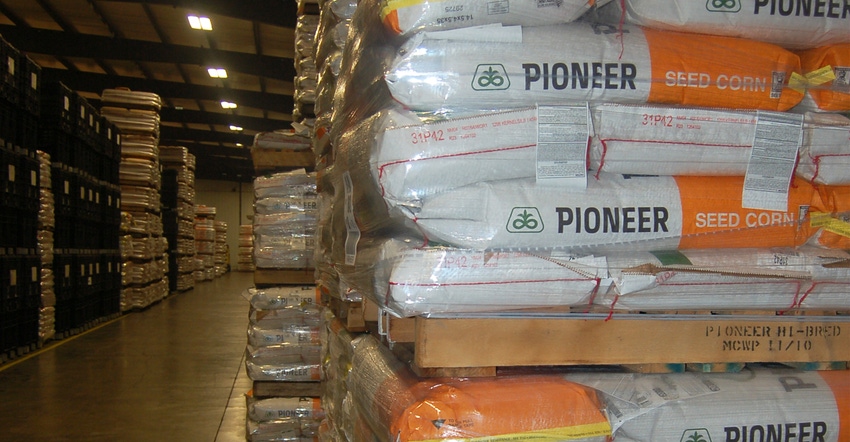
Do you ever look at the tag on seed bags or big boxes? Do you check for germination and information on other factors? If you don’t, should you? Who is responsible for making sure the information on that tag is correct? How do you know the seed that goes into your planter or drill matches the description on the tag?
In Indiana, Don Robison is the person ultimately responsible for making sure the seed tag accurately represents the seed that you will plant. He is the Indiana seed administrator, charged with enforcing Indiana’s seed laws. He replaced Larry Nees, who retired last year after 41 years in the position. In this exclusive interview with Indiana Prairie Farmer, Robison explains the role of the seed law and why you should pay attention to seed tags.
IPF: What is your primary duty as seed administrator?
Robison: My role is to regulate the seed trade in Indiana. Basically, my staff and I enforce the provisions of the Indiana seed law. We determine the parameters that need to be on the seed tag, and then test to make sure what is on the tag is in the bag.
IPF: If you are selling seed in Indiana, what must you do?
Robison: Anyone selling seed in Indiana must have a permit. The permit itself is free. It lets us know who is out there selling seed. There is a state seed inspection fee. Money collected through fees provides the budget for our office and staff.
IPF: If you sell any type of seed, say wheat seed, to a neighbor, do you need a permit?
Robison: Yes. That is one of the messages I am trying to relate as I talk to and meet with people. If you sell seed to anyone, the Indiana seed law says you need a permit. That lets us know that you are out there and that you sell seed. You can obtain the permit from the Indiana Office of the State Chemist and Seed Commissioner.
IPF: Why do you have a seed lab on campus at Purdue University?
Robison: We test about 4,000 samples of seed per year. We perform a regulatory function. When our technicians inspect a sample, they are making sure that the seed tag adequately describes the sample of seed that was submitted with the tag.
IPF: Do you have inspectors? If so, what is their role?
Robison: Yes. We have a staff of seven inspectors. They travel the state and pull samples for inspection. Say an inspector pulls at a retail dealership that sells seed. Samples are analyzed in our lab. If the germination percentage on the tag says 96%, then we want to make sure the minimum germination is 96%. That’s how the law provides protection for you as the customer. Regulatory reports about the results are sent to the retail dealer and the original seedsman.
IPF: What if the seed doesn’t measure up to what is described on the tag?
Robison: If it’s off in one area, it’s likely a minor violation. If two or more factors are off, it’s a more serious violation. In some cases, the seed may need to be retagged before it can be sold.
About the Author(s)
You May Also Like




